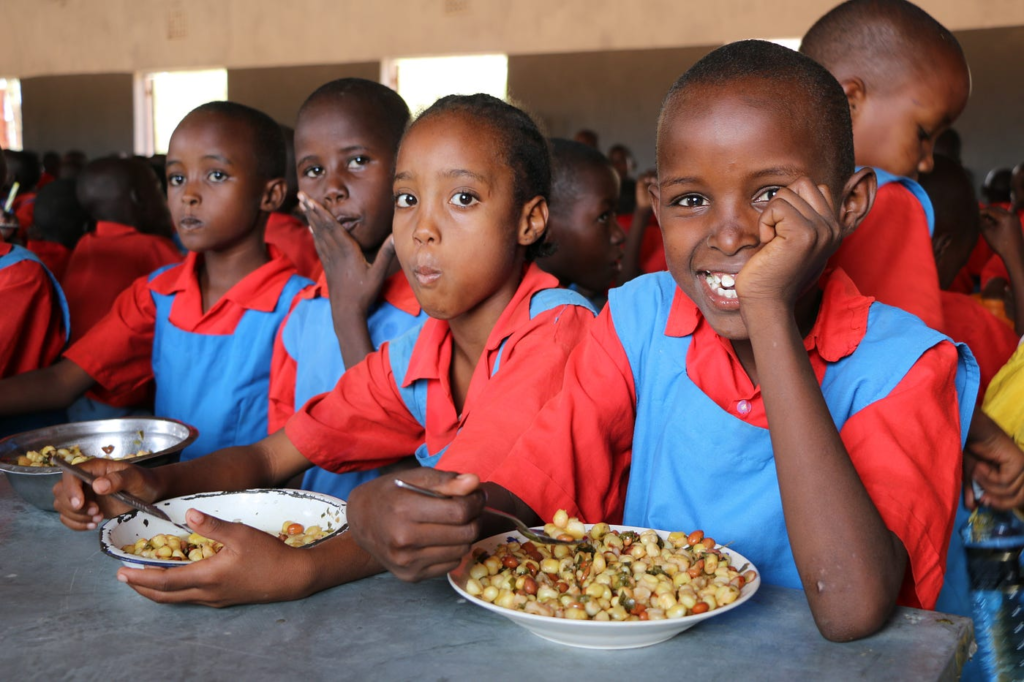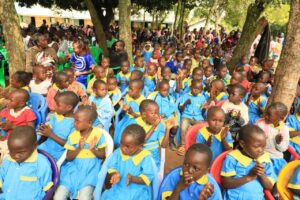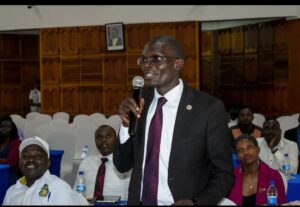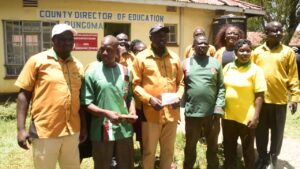
| Leah Nelima |
Thousands of children from low-income families can now grin since parliament overruled the Treasury and restored two billion shillings to fund the school meal program.

This comes after the education committee of the national assembly overturned the budget cuts for the fiscal year that began on July 1st.
The committee’s chair, Julius Melly, informed the National Assembly’s Budget and Appropriations Committee (BAC) that the National Council for Nomadic Education in Kenya (NACONEK) budget has been reinstated with a sum of sh2 billion.
The multi-million shilling school food program funding was eliminated by the Treasury from the proposed budget estimates for the 2024–2025 fiscal year.
For the fiscal year that ends on June 30, 2024, sh4.4 billion was allotted to the school feeding program.
“The committee has reinstated sh2 billion under the NACONEK for this important programme” , added Melly.
“Yet, the feeding program’s reduced amount was sh4.9 billion. The committee suggests that in order to restore the whole amount, the Budget and Appropriations Committee think about allocating the extra Sh3 billion.”
According to Mr. Melly, the food program is an essential intervention that helps keep students in marginalized communities, particularly in urban slums and dry and semi-arid regions.
“This allocation should be provided under the NACONEK which is the institution tasked with implementing this programme,”Mr Melly remarked.
Additionally, we have stated unequivocally that NACONEK must organize itself. They now have a council or board to manage its operations.”
In the fiscal year 2024–2025, the Treasury has allotted sh642 billion to fund the education program, a decrease of sh47 billion from the present allocation of sh689 billion.

The BAC chair, Ndindi Nyoro, insisted on knowing how much the government would have to spend on feeding the kids in the event that there isn’t a supplemental budget.
From where we are seated, it ought to be evident that education is our top concern. “We create the budget with the assumption that there won’t be a supplemental budget,” Mr. Nyoro stated.
In light of this, will your ministry continue to exist if there isn’t a supplemental budget for the 2024–2025 fiscal year? Kenyans want to withstand the floods and drought that we have experienced. In the event that an additional budget is not forthcoming, what is the required amount of funding for the school food program?”
Mr. Nyoro backed Mr. Melly’s plan to engage 46,000 intern teachers for junior secondary schools on permanent, pensionable terms.
The Education Committee has suggested that JSS instructors be hired with a backdate from January 2025 to July 2024, on a permanent and pensionable basis.
“We need to provision the money in the budget for hiring the JSS teachers on permanent and pensionable terms assuming there will be no supplementary budget,” Mr Nyoro stated.
“The initial group of JSS teachers comprised 26,000 individuals. 20,000 were in the second batch. How much will it cost to employ all 46,000 JSS teachers on a permanent and pensionable basis?
“We would like to know how much it will cost us to hire intern teachers again between January 2025 and July 2024. “They have persevered and given up their time to educate our kids,” Mr. Nyoro remarked.






